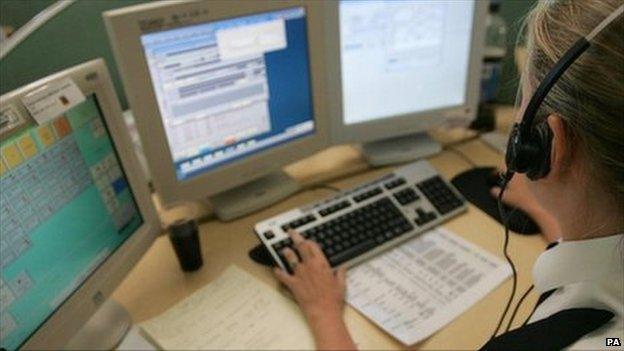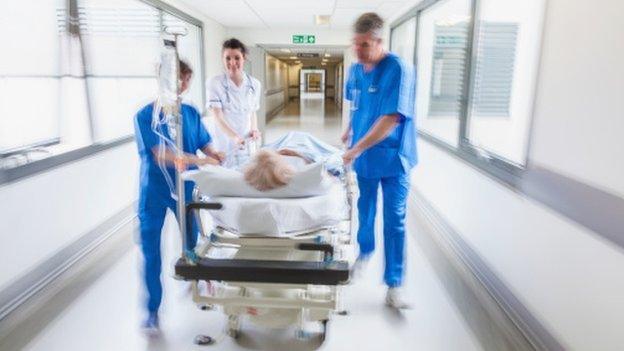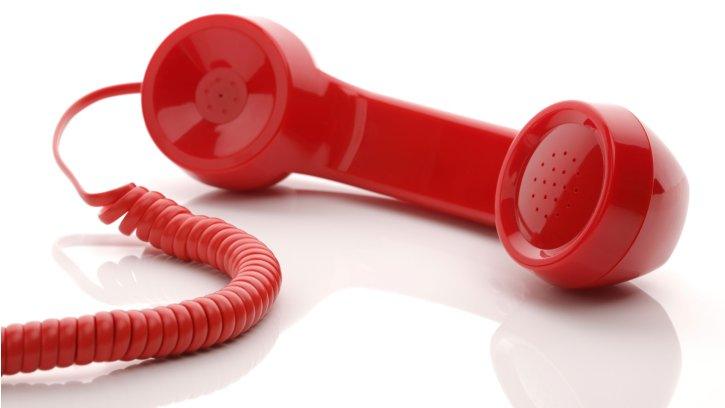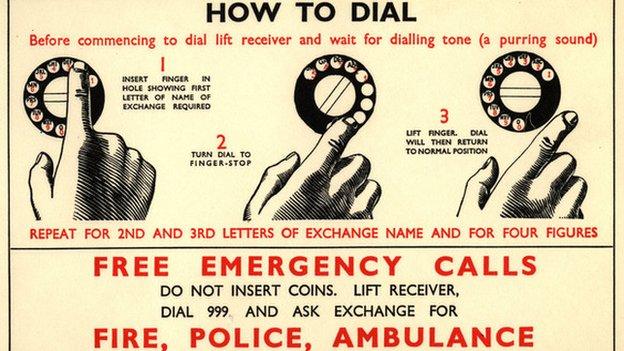Adapt 999 for smartphone technology, report says
- Published

Police regularly release recordings of "silly" 999 calls to highlight the issue of time-wasting
Radical changes should be made to 999 call services in the UK to allow people to utilise smartphones in an emergency, a report has said.
Emergency services should create a data-based system to filter reports and deploy responders, says the Institute of Engineering and Technology (IET).
Smartphone technology and apps could be used to send alerts to the emergency services, it says.
Prof Will Stewart said there was a "critical" need to update the service.
A service primarily for deaf people and those with speech difficulties already exists,, external but requires people to register beforehand.
The report - called Contacting Emergency Services in the Digital Age - says emergency services need to "reflect the digital age" and the fact people now increasingly use text messages and social media to communicate, rather than making a voice call.
'More appropriate'
Prof Stewart, chair of the IET's communications policy panel, said communication had changed "drastically" since the 999 service was designed in 1937.
"Given that young people are statistically more likely to be victims of crime or accidents, it is a concern that making a voice call to contact the emergency services is not something that would feel natural to them," he said.
He added: "A girl alone in a minicab who becomes worried about her personal safety might feel unable to make a call on her mobile phone - but could send a text or alert someone over social media.
"And in the case of certain crimes, such as abduction or a break-in, a silent text or app-based alarm system would be more appropriate and instinctive than the current voice-based one for everybody - irrespective of their age."
Prof Stewart said much of the technology required to update 999 services was available, but changes would need to be arranged in consultation with the main mobile and app-based text providers.
The report also said existing emergency services could be improved by using the latest GPS technology available on smartphones.
An automatic software system could also scan texts and pass on any known user information and approximate handset location to call handlers.
Smartphone technology
Prof Stewart said smartphones, which were now widely used, also had the technology to provide emergency services with a variety of information about their owners.
"The real problem with 999 is triage, i.e. deciding what to do when the call comes in, and people are confused, not talking very well," he said.
"Your smartphone knows a lot of useful stuff. Firstly your location, secondly perhaps just listening to what's going on, activating your camera and looking at what's going on.
"If you're in a distressed situation, the operator would be much better able to decide what your problem was than she was just listening to you sounding confused and distressed."
Prof Stewart said the use of smartphones could "help, rather than hinder, the information problem".
Supt Mark Nottage, from the emergency services mobile communication programme at the Home Office, said the emergency services needed to reflect a world where "many people rarely make voice calls in their daily lives".
"This means that we need to adapt and be responsive to ensure that when people need to contact the emergency services or other public services they can quickly access the right information and the most appropriate service first time, and in the way that they choose and are familiar with," he said.
- Published17 June 2015

- Published7 August 2014

- Published30 June 2012
